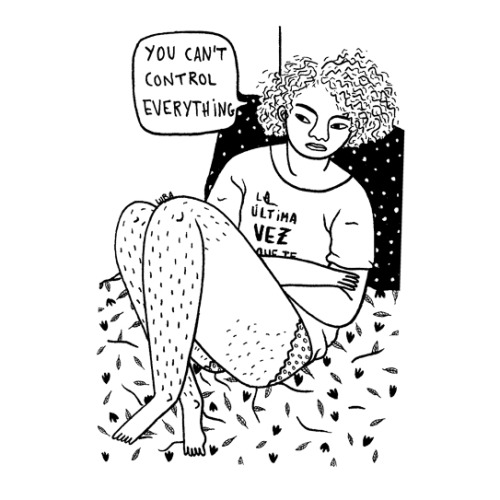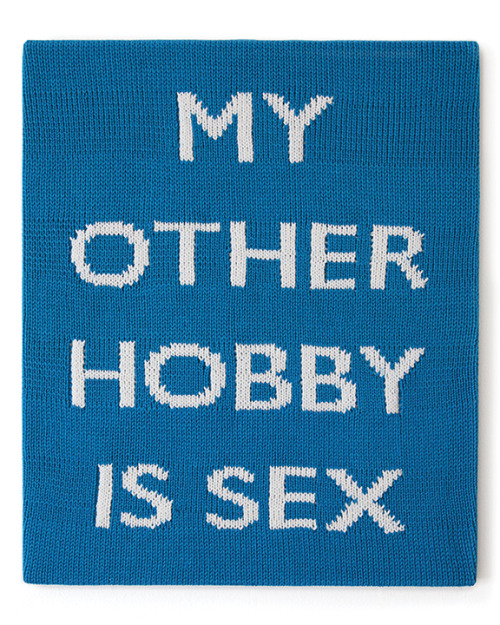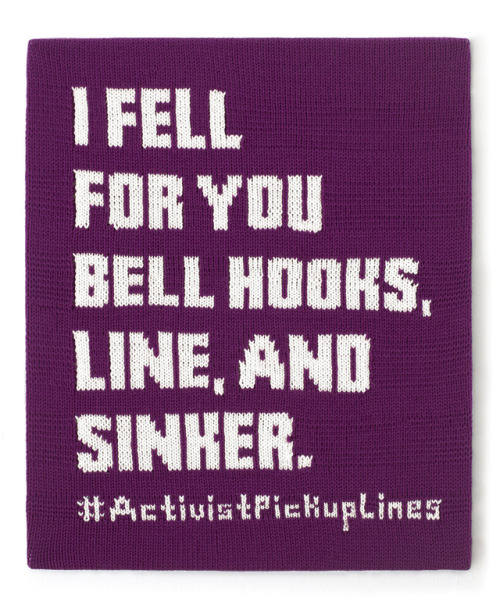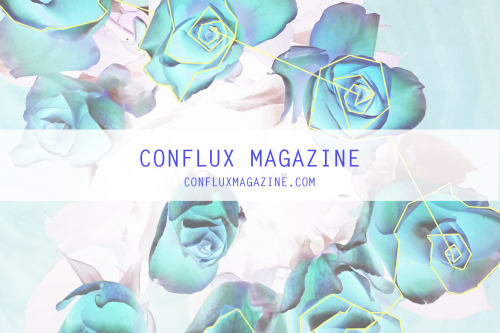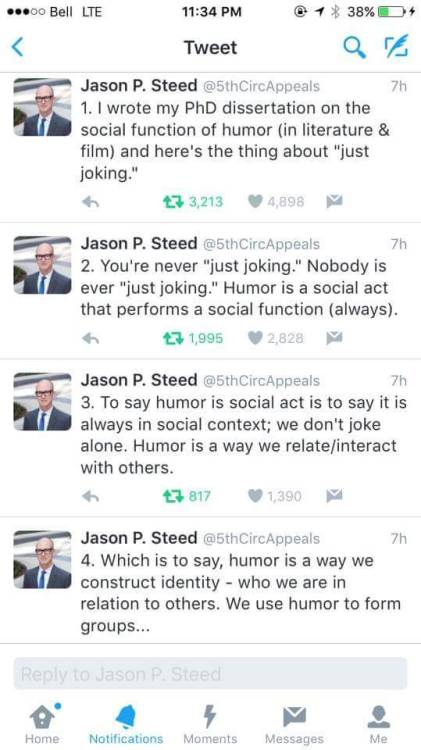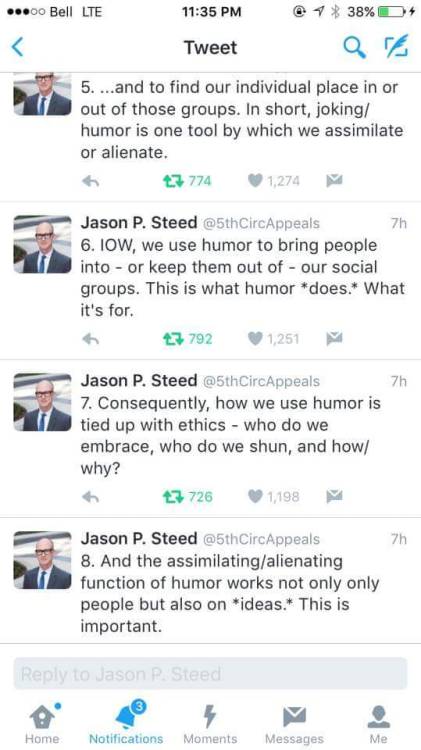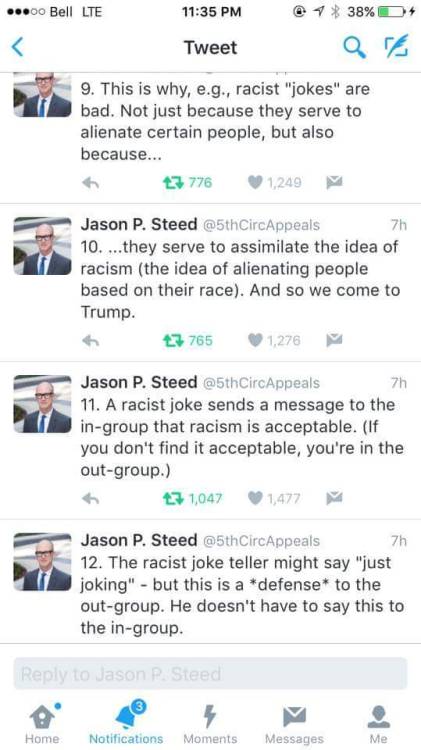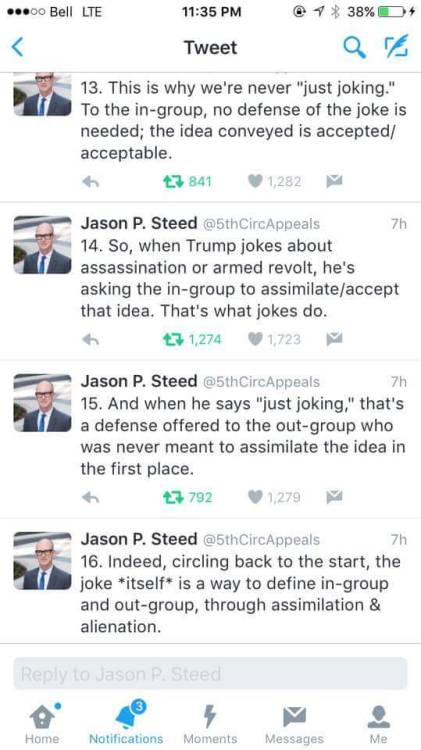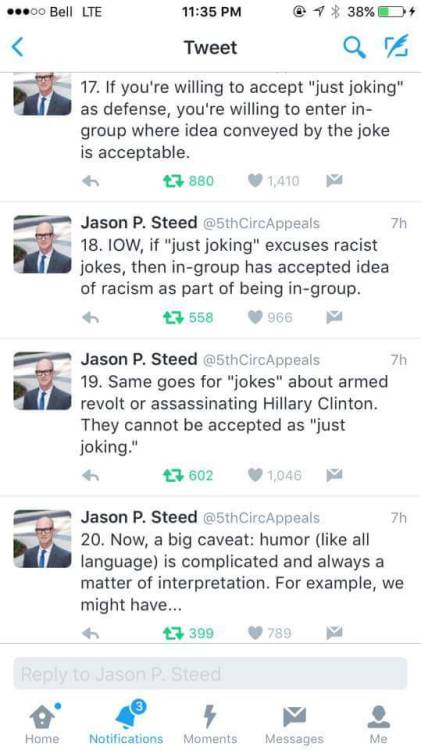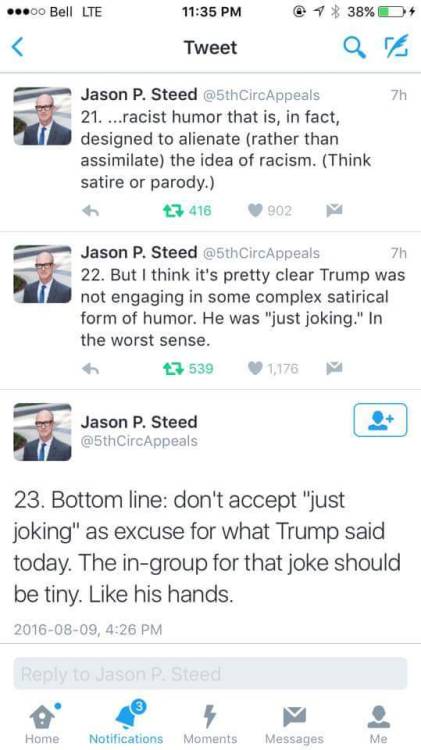#intersectionality
FromWall Hangings, an ongoing project by “queer, male-bodied, HIV-positive artist” Ben Cuevas.
I hold these very different things within me, this sort of feeling of femininity and masculinity. I have these very feminine interests that are traditionally considered women’s work and these very masculine interests and sexuality. I think it’s really interesting to see how they come together.
(Source)
Post link
BIG NEWS! Conflux is now online! Check out www.confluxmagazine.com for original writing, interviews, and art on mixed identity. We’ll be putting up a few new pieces every month, so stay tuned for more! And don’t worry—we’re still doing our print issues too :)
Post link
ATTENTION, WORLD! We now have a pretty new website where you can *ORDER OUR FIRST ISSUE ONLINE*<3
Here’s what you’ll find in VOL 1 ISSUE 1: THE MIXED CULTURE ISSUE:
THE LIFE ALCHMEIST Elizabeth Brand photographs wellness blogger/world traveler Diya SenGupta
(RE)CALLING HOME Daniel Hopp calls his mom to discuss growing up the Chinatown of Manila
DATING WHILE OLIVE/TAN/BROWN (PICK ONE OR ALL), MUSLIM (BELIEVE IT OR NOT), AND BROKE OFF MY ASS (THIS ONE’S UNNEGOTIABLE) Editor-in-Chief Ozra Yazdani explains it all
THE LAST SEMESTER Hugo Estrada talks to his sister and her partner about starting a new family
IN HER SANCTUARY Editor-in-Chief Anita SenGupta asks Indonesian musician Andine Sutarjadi about her influences
STRINGS ATTACHED Photographer Justin Amoafo explores human interaction
WHAT’S IN A NAME Editor-in-Chief Anita SenGupta wonders if names really matter
LIFE HACKS OF A MODERN-DAY POWER WOMAN Editor-in-Chief Ozra Yazdanzi gets life advice from wonder woman Mona Sinha
MY OTHER SELF Photographer Morgan Gelber visits her motherland
Post link

Today is the hashtagversary (hashtag anniversary) of #DisabilityTooWhite. I cannot believe it has been a year since the hashtag went viral, and how it changed my life and the dialogue in the community.
It still astounds me that something I created from an impassioned reaction to an article stirred up so much conversation and controversy. The hashtag forced me, and others, to discuss the…

Photo of Keri Gray, light-skinned Black women with a small afro who is smiling into the camera and throwing up the peace sign. Keri is dressed in business attire and is standing near a black podium. The podium has a white sign on the front of it that reads: “national youth transition center.”
For Women’s History Month, I want to spotlight the phenomenal Black women I know who are trailblazers and…
A lot of people when they hear the terms “prochoice”, “reproductive rights” or even “reproductive justice” only think of abortion, but this view is myopic in my opinion. “Reproducing” encompasses many things which includes the right to choose to have children (or give birth and choose adoption), to choose to not have children right now, and to choose to never have children. Reproductive justice frameworks are holistic and look at reproductive rights with the whole person in mind. This means people also have the right to quality and comprehensive sex education, contraception, relevant medical care, the right to be sterilized and the right to not be forcibly sterilized, and a whole host of birthing choices as well (home/natural births, VBACs, the right to refuse c-sections, etc).
Not only that but reproductive rights activists are also concerned with advocating for the personhood/bodily integrity/and autonomy of pregnant people, advocating for reproductive health care as a human right, eradicating obstetric fistula and illegal/unsafe abortion in the developing world, lowering the incidence of teen pregnancy and STIs, lowering the mortality and morbidity rates of pregnant people, improving access to quality healthcare especially for people in poverty. The list goes on and on. Further, we must remember that race, class, disability status, citizenship status, gender, sexual orientation, etc all intersect and all have an effect on how we can or cannot utilize our reproductive rights, and therefore all of those issues must be addressed for reproductive justice to be successful in upholding the rights of all people not just those who are white, wealthy, able-bodied, straight, cis, male citizens.
So what does this have to do with trans* people?
Well, perhaps not everyone within the movement believes “prochoice” should be a holistic philosophy, but I for one, do. We concentrate on abortion rights because that’s the issue so often under attack, but to be actually “prochoice” is much more expansive than that. It’s about bodily integrity and the importance of keeping personal bodily decisions just that, personal. It’s about birthing choices as much as it is abortion. It’s about how the reproductive rights of different segments of society have been effected differently and what that means to all of us as a whole. Intersectionality matters because poc, poor people, disabled people, trans* people, people of various sexual orientations have been targeted differently and yet it’s all part of a larger system that denies those seen as the “other” the freedom to make basic choices in regards to how their bodies are viewed and how they are utilized. Therefore it’s important to remember that the sexist and cissexist system that seeks to control the sexuality, bodies, and reproduction of those it perceives to be women is the same system that actively targets the identities, bodies, reproduction, and sexualities of trans* people. Reproductive rights aren’t about abortion, they’re about the profound and fundamental right to bodily integrity.
So what is trans* repro justice?
It’s the radical notion that:
- Our bodies belong to us and our right to bodily integrity doesn’t dissipate when society becomes aware of our trans*ness.
- Our bodies and identities are valid, no matter how “uncommon” they may be.
- Language matters and so does inclusivity. When your rhetoric excludes us so do your actions, and that sometimes literally kills us.
- We don’t need to be pathologized or “explained” within a cissexist paradigm.
- You don’t need to understand us to respect us.
- Sex and gender are not neat binaries.
- We deserve to have our needs met and our boundaries respected just as much as anyone else.
- Medical care should be easily accessible to every one that needs and wants it.
- Parenthood and reproduction are basic human rights and no person should be sterilized without their consent or knowledge. In the other direction, all people that seek sterilization should be able to do so without jumping through hoops for paternalistic doctors.
- All of us have the right to information about our bodies, that doesn’t exclude or denigrate our identities or misgender us, to ensure we can maintain our health.
- All of us have a right to maintain our humanity, dignity, and health. This doesn’t change with citizen status or prisoner status.
- Intersectionality is important. Trans* activism must be cognizant of it, and willing to acknowledge the power hierarchies and systems of privilege within our own community.
- We all have the right to control our fertility how we see fit (whether through pregnancy, adoption, single parenthood, harvesting eggs, sperm banking, etc), and those services should be accessible and affordable.
- We are perfectly capable of being wonderful parents and raising amazing, well-adjusted children.
- Men can and do give birth. Not all those that give birth are mothers.
- Women can and do impregnate people. Not all those that impregnate are fathers.
- “Mothers” and “fathers” aren’t the only type of parents that exist.
- We have a right to obtain government issued identification documents that acknowledge our identities (even nonbinary ones!) without having to undergo costly surgery we may not even want.
- We shouldn’t have to conform to a coercive, gendered script for the comfort of cis people nor should we be expected to live or perform a typical trans* narrative to be taken seriously.
- We should be able to use public restrooms without being attacked, mocked, or arrested.
- Our identities and bodies shouldn’t be caricatured for the amusement of society.
- We are people. We are valid. We are here to stay.
This is a work in progress. Any additions are welcome!
Reblogging here so more people will see this and also to plug my new trans*-centered repro justice blog.
A list of books for Black men who want to support Black women and gain a better understanding of race tied to toxic masculinity, sexism, male privilege, misogyny and misogynoir (a hatred for Black women). After you finish this list, APPLY THIS KNOWLEDGE- PRACTICE IT. BE GOOD TO BLACK WOMEN. LOVE US BETTER: ✊ We Real Cool: Black Men and Masculinity by bell hooks This book will change your life. A Black woman took the time to not only explain why Black men can be sexist, she reveals how you are also oppressed and provides strategies on how you can heal. If you are able to heal, then you will be able to truly support Black women. - Here is the PDF: https://feminism.memoryoftheworld.org/Bell%20Hooks/We%20Real%20Cool_%20Black%20Men%20and%20Musculinity%20(449)/We%20Real%20Cool_%20Black%20Men%20and%20Musculinity%20-%20Bell%20Hooks.pdf ✊ Words of Fire: An Anthology of African-American Feminist Thought by Beverly Guy-Sheftall - check out a series of writings by different Black women ✊ At The Dark End of the Street by Danielle McGuire This is written by a white woman, however, this reveals Black women as the catalyst for the Civil Rights Movement and how (trigger warning) sexual violence was a contributing factor. ✊ Sister Outsider by Audre Lorde -Read all of it for sure, however, please read the essay “The Erotic as Power: Uses of the Erotic as Power.” It’s important that you understand why it is a terrible thing to sexually shame women. Lorde will also teach you that Black women don’t owe you anything romantically or period. We will support you, but we don’t have to be with you. Be ok that you may not be of interest when it comes to our sexuality. “Black women sharing close ties with each other, politically or emotionally, are not the enemies of Black men.” - Audre Lorde ✊ The Womanist Reader ( a Womanist Anthology) edited by Layli Phillips - A lot of you as Black men only discuss feminism as if it is a dirty word. Learn that [white] Feminism is very different from Black Feminism. BUT now learn that Black women can want to dismantle patriarchy, sexism, homophobia, transphobia, etc. and not be a Black Feminist. THIS BOOK shows there are a series of Black women who identify as Womanist. There are also Africana Womanist, African Feminist, and Intersectional Feminism. A matter of fact, Black women can actually have all of these beliefs, but not label ourselves as any of these Black women ideologies. ✊ “Womanism” (the essay) by Alice Walker (Yes, the woman who wrote The Color Purple) - This can be found in the a Womanist Reader. In 1979, Walker coined the term Womanism. This is typically the reading that I have found has changed Black men’s perspectives on Black women… Some of you have been brought to tears by it. Get into it. ✊ In Search of Our Mother’s Garden by Alice Walker ✊ “Mapping the Margins: Intersectionality, Identity Politics, and Violence against Women of Color” (an essay) by Kimberle Crenshaw - In 1991, a Black woman coined a term that was intended to debunk why it’s difficult to be just “race first,” especially as a Black woman when we have various identities that place us at the margins (keep us oppressed just like you and sometimes more so). The term is “intersectionality.” Here is a PDF- http://multipleidentitieslgbtq.wiki.westga.edu/file/view/crenshaw1991.pdf ✊ Multiple Jeopardy, Multiple Consciousness: The Context of a Black Feminist Ideology (an essay) by Deborah K. King If you have heard of W.E.B. Du Bois, double consciousness, imagine reading something as Black men discussing the various identities and intersections that we face as Black women. King shows how socially this keeps Black women in comparison to you and people of other races and genders at the bottom. Here is a PDF- http://web.uvic.ca/~ayh/318King%20Multiple%20Jeopardy.pdf ✊ Black Feminist Thought by Patricia Hill Collins - It is just important. Period. and gain a better understanding of race tied to toxic masculinity, sexism, male privilege, misogyny and misogynoir (a hatred for Black women). After you finish this list, APPLY THIS KNOWLEDGE- PRACTICE IT. BE GOOD TO BLACK WOMEN. LOVE US BETTER: ✊ We Real Cool: Black Men and Masculinity by bell hooks This book will change your life. A Black woman took the time to not only explain why Black men can be sexist, she reveals how you are also oppressed and provides strategies on how you can heal. If you are able to heal, then you will be able to truly support Black women. - Here is the PDF: https://feminism.memoryoftheworld.org/Bell%20Hooks/We%20Real%20Cool_%20Black%20Men%20and%20Musculinity%20(449)/We%20Real%20Cool_%20Black%20Men%20and%20Musculinity%20-%20Bell%20Hooks.pdf ✊ Words of Fire: An Anthology of African-American Feminist Thought by Beverly Guy-Sheftall - check out a series of writings by different Black women ✊ At The Dark End of the Street by Danielle McGuire This is written by a white woman, however, this exposes Black woman as the catalyst for the Civil Rights Movement and how (trigger warning) sexual violence was a contributing factor. ✊ Sister Outsider by Audre Lorde -Read all of it for sure, however, please read the essay “The Erotic as Power: Uses of the Erotic as Power.” It’s important that you understand why it is a terrible thing to sexually shame women. Lorde will also teach you that Black women don’t owe you anything romantically or period. We will support you, but we don’t have to be with you. Be ok that you may not be of interest when it comes to our sexuality. “Black women sharing close ties with each other, politically or emotionally, are not the enemies of Black men.” - Audre Lorde ✊ The Womanist Reader ( a Womanist Anthology) edited by Layli Phillips - A lot of you as Black men only discuss feminism as if it is a dirty word. Learn that [white] Feminism is very different from Black Feminism. BUT now learn that Black women can want to dismantle patriarchy, sexism, homophobia, transphobia, etc. and not be a Black Feminist. THIS BOOK shows there are a series of Black women who identify as Womanist. There are also Africana Womanist, African Feminist, and Intersectional Feminism. A matter of fact, Black women can actually have all of these beliefs, but not label ourselves as any of these Black women ideologies. ✊ “Womanism” (the essay) by Alice Walker (Yes, the woman who wrote The Color Purple) - This can be found in the a Womanist Reader. In 1979, Walker coined the term Womanism. This is typically the reading that I have found has changed Black men’s perspectives on Black women… Some of you have been brought to tears by it. Get into it. ✊ In Search of Our Mother’s Garden by Alice Walker ✊ “Mapping the Margins: Intersectionality, Identity Politics, and Violence against Women of Color” (an essay) by Kimberle Crenshaw - In 1991, a Black woman coined a term that was intended to debunk why it’s difficult to be just “race first,” especially as a Black woman when we have various identities that place us at the margins (keep us oppressed just like you and sometimes more so). The term is “intersectionality.” Here is a PDF- http://multipleidentitieslgbtq.wiki.westga.edu/file/view/crenshaw1991.pdf ✊ Multiple Jeopardy, Multiple Consciousness: The Context of a Black Feminist Ideology (an essay) by Deborah K. King If you have heard of W.E.B. Du Bois, double consciousness, imagine reading something as Black men discussing the various identities and intersections that we face as Black women. King shows how socially this keeps Black women in comparison to you and people of other races and genders at the bottom. Here is a PDF- http://web.uvic.ca/~ayh/318King%20Multiple%20Jeopardy.pdf ✊ Black Feminist Thought by Patricia Hill Collins - It is just important. Period. One day I will add more to this list Black men. I just hope that you read it. I love you, but I’m calling you to do better by Black women.

Caitlin Wood’s 2014 edited volume Criptiques consists of 25 articles, essays, poems, songs, or stories, primarily in the first person, all of which are written from disabled people’s perspectives. Both the titles and the content are meant to be provocative and challenging to the reader, and especially if that reader is not, themselves, disabled. As editor Caitlin Wood puts it in the introduction, Criptiques is “a daring space,” designed to allow disabled people to create and inhabit their own feelings and expressions of their lived experiences. As such, there’s no single methodology or style, here, and many of the perspectives contrast or even conflict with each other in their intentions and recommendations.
The 1965 translation of Frantz Fanon’s A Dying Colonialism, on the other hand, is a single coherent text exploring the clinical psychological and sociological implications of the Algerian Revolution. Fanon uses soldiers’ first person accounts, as well as his own psychological and medical training, to explore the impact of the war and its tactics on the individual psychologies, the familial relationships, and the social dynamics of the Algerian people, arguing that the damage and horrors of war and colonialism have placed the Algerians and the French in a new relational mode.
Read the rest of Criptiques and A Dying ColonialismatTechnoccult
[This is a in-process pre-print of an as-yet-published paper, a version of which was presented at the Gender, Bodies, and Technology 2019 Conference.]
INTRODUCTION
The history of biotechnological intervention on the human body has always been tied to conceptual frameworks of disability and mental health, but certain biases and assumptions have forcibly altered and erased the public awareness of that understanding. As humans move into a future of climate catastrophe, space travel, and constantly shifting understanding s of our place in the world, we will be increasingly confronted with concerns over who will be used as research subjects, concerns over whose stakeholder positions will be acknowledged and preferenced, and concerns over the kinds of changes that human bodies will necessarily undergo as they adapt to their changing environments, be they terrestrial or interstellar. Who will be tested, and how, so that we can better understand what kinds of bodyminds will be “suitable” for our future modes of existence?[1] How will we test the effects of conditions like pregnancy and hormone replacement therapy (HRT) in space, and what will happen to our bodies and minds after extended exposure to low light, zero gravity, high-radiation environments, or the increasing warmth and wetness of our home planet?
During the June 2018 “Decolonizing Mars” event at the Library of Congress in Washington, DC, several attendees discussed the fact that the bodyminds of disabled folx might be better suited to space life, already being oriented to pushing off of surfaces and orienting themselves to the world in different ways, and that the integration of body and technology wouldn’t be anything new for many people with disabilities. In that context, I submit that cyborgs and space travel are, always have been, and will continue to be about disability and marginalization, but that Western society’s relationship to disabled people has created a situation in which many people do everything they can to conceal that fact from the popular historical narratives about what it means for humans to live and explore. In order to survive and thrive, into the future, humanity will have to carefully and intentionally take this history up, again, and consider the present-day lived experience of those beings—human and otherwise—whose lives are and have been most impacted by the socioethical contexts in which we talk about technology and space.
This paper explores some history and theories about cyborgs—humans with biotechnological interventions which allow them to regulate their own internal bodily process—and how those compare to the realities of how we treat and consider currently-living people who are physically enmeshed with technology. I’ll explore several ways in which the above-listed considerations have been alternately overlooked and taken up by various theorists, and some of the many different strategies and formulations for integrating these theories into what will likely become everyday concerns in the future. In fact, by exploring responses from disabilities studies scholars and artists who have interrogated and problematized the popular vision of cyborgs, the future, and life in space, I will demonstrate that our clearest path toward the future of living with biotechnologies is a reengagement with the everyday lives of disabled and other marginalized persons, today.
Read the rest of Heavenly Bodies: Why It Matters That Cyborgs Have Always Been About Disability, Mental Health, and MarginalizationatA Future Worth Thinking About
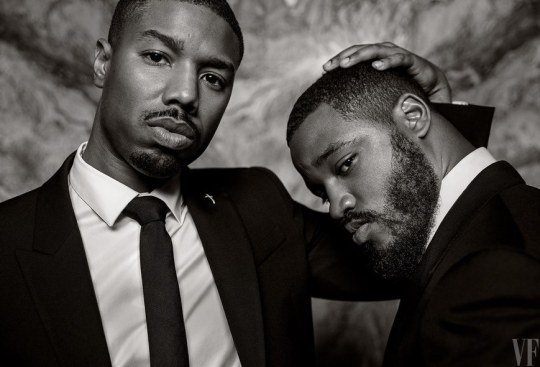
Just like you, maybe, I saw the Vanity Fair portrait of Michael B. Jordan and Ryan Coogler and I thought it was beautiful. Two straight men showing affection for each other. And just like you, maybe, I followed the online criticism that it sparked. Hundreds of comments poured in that seemed to fall into one of the following categories: (1) That’s gay. Get this out of my face. (2) Why does America need to keep emasculating Black men? (3) Don’t worry, this is brotherly love not the other, bad kind of love. (4) We should celebrate love because all love is beautiful. And just like you - maybe - I was prompted to wrestle, yet again, with the impossibility and absolute necessity of queer men of color on screen. Which is, of course, not to say only queer men of color but all diversity within color so that we avoid the danger of single stories and false paradigms.
This is not about Michael B. Jordan’s and Ryan Coogler’s sexuality; it never was. It’s about what people feel when they see avatars of themselves doing something they’ve been strictly warned against.
In 2014 Nate Parker, the writer-director-star of the Sundance hit The Birth of a Nation (the soon-to-be Best Picture nominee, not the deeply deeply racist 1915 movie), sat down for an interview with BET. He said that to “preserve the black man you will never see [him] play a gay role.” The video has since been taken down but, like an elephant, the internet forgets nothing; an article on Ebony and a now-defunct URL from Bossip have preserved this quote for posterity.
“Preserve the black man.” “Emasculation of black men.” There is a clear parallel between Parker’s promise and the Vanity Fair portrait criticism: maintaining value through preservation of image.
We care about images of ourselves on screens, whether they are our own or similar to our own. Just as we check selfies to make sure we look good in them, or untag pictures of ourselves if they don’t represent who we want to be, we also care about the celebrities and roles that are meant to represent us. Pictures and celebrities are our avatars; they stand for us when we’re not there. They are our proxies in fantasy worlds and historical re-tellings and red carpet photographs. They are meant to be just like us. Maybe.
People of color have far fewer avatars on screen than our white counterparts. And with that comes a protectiveness of how our avatars are presented. I read Nate Parker’s promise to never play a gay character and the comments about the “emasculation of the black man” not as hate, but as terrified preciousness. The fear that one of the limited reflections they see of themselves will be devalued and shattered with the slightest wrong move.
Nate Parker is not the enemy. Nor are the commenters. Though their statements are hurtful, myopic, and couched in femmephobia, their unfortunate words are only symptoms of the problem. The real enemy is the system that has so disproportionately limited the options for The Other that all of us “Others” are left fighting over what it means to be a Good Other. Like Kerry Washington so brilliantly said, “we have been pitted against each other and made to feel like there are limited seats at the table.”
Part of the privilege of whiteness is the diversity of white avatars that appear on screen. There is less preciousness because there are so many options.
Now let’s revisit that selfie analogy. It’s like white people were handed smartphones with unlimited storage and data and told to take selfies of themselves while people of color, all people of color, were thrown one disposable camera with the same instructions. All we can do is take 27 photos and hope - against all odds - that one of them will look just like us. All of us. Maybe.
Additional reading: Son of Baldwin|Jason C. Harris|Robert Jones, Jr.
America, where #lgbtqpoc lives and the lives of #blackwomen are silenced. Let’s vote and #resist so that we attain that #equality that has been for some, not all. #Vote to change this and keep the #resistance going. We are not done until everyone enjoys the same #privileges and #freedoms others have, just because.
#blacklivesmatter✊✊✊ #blacklivesstillmatter #qtpoc #intersectionality #lgbtqrights #lgbtqvote #lgbtqrights #blacklesbiancouples #instablack #blackisbeautiful #breonnataylorwasmurdered #blmmovement #blacklivesmatter✊ #dontsilenceblackvoices #equalityforall #stopracism #stopkillingblackpeople #lgbtqblacklivesmatter #therainbowtimes
Photo: Rick Stone /Pinterest
(at Boston, Massachusetts)
https://www.instagram.com/p/CG8x13iA3IP/?igshid=1ll51c6rb7zt4
Post link
And then there are guys like these ones. Kudos for them. We hope this is the future … men standing for women and not placing roadblocks for them or their paths.
—
•
—
#womensmarch2020 #equalrightsforall #rapeculture #feminism #equalpay #instawomen #biwomen #bisexualgirls #instalesbians #patriarchy #transwomen #instagirl #womengram #dyke #dykes #instadyke #womensupportingwomeninbusiness #womenhelpingwomen #womenmarch #glassceiling #womenpower #womeninpolitics #generationequality #therainbowtimes #lgbtqnews #intersectionality #rainbowtimesmagazine #genderequality #womenleaders #womeninconstruction #womenhelpingwomen (at Boston, Massachusetts)
https://www.instagram.com/p/CGp-aoEAYN-/?igshid=27zdmfat7esd
Post link
I wonder what kind of girl I would be if the patriarchy didn’t exist. If gender roles and stereotypes didn’t stain my entire being. If I didn’t suffer at the hands of misogyny that molded the clay that was me. I wonder what I would do, what I would say, what I would like, what I would crave, what I would be. The likelihood of us being anything close to similar seems slim considering how many things could be different. I just wonder what type of woman I would be if I hadn’t been told from the day I was born how and who I should become. Would I still enjoy wearing makeup if I hadn’t been conditioned to feel better about myself with it on? Would my favorite color still be orange if pink hadn’t been forced on me and I didn’t care to make a point of rejecting it? Would I stand up for myself more if I hadn’t been taught to cater to the comfort of others before prioritizing my own? Would my natural instinct still be to feel wary of those around me if abuse and harassment and assault were not normalized in our society? Would I still want long hair if I hadn’t been brainwashed into believing that my beauty is rooted in being feminine, and that my value is rooted in being beautiful? Would I be the same? How much, or how little, would that impossible girl resemble me as I am now? And are my interests and passions genuine—truly mine—or can they all be linked to some expectation to accommodate, some predetermined role to serve, some juxtaposing desire to please a system I don’t even like. Do I actually love video games as much as I think I do, or do I only like them because I think it makes me appear cooler to men? Do I actually want to get married as much as I think I do, or do I only want to because historically that was where the female fit in? Do I actually find solace in journaling as much as I think I do, or do I only find solace in it because it is the only time I can share my traumatic experiences without being called a crazy attention seeker? There is so much I wonder about, which parts of me are real and which have been tinkered with. Which is just pure me, and which is because of something else. A factor of the patriarch. Of course I’ll never know, but that truth does not keep me from being curious about the girl who does not suffer from the wrath of an internalized male gaze and the burden of internalized misogyny. I bet she is lovely—free of the shackles—and I hope she feels at peace.
— alhwrites
There’s a particular attitude I often see on the internet that goes something like “If you aren’t part of a particular marginalized group, then you could never understand their experience, so don’t pretend to relate.” And while obviously you’re never going to relate to every aspect of that identity unless you are also of that identity, I feel like this attitude really diminishes opportunities for finding kinship and bonding in similar experiences even if those experiences aren’t exactly the same and/or are the result of different identities.
For example, I’m white and neurodivergent, and I was talking to a Black neurotypical friend about masking, and how I feel like I have to change the entire way I present myself in order to not be considered weird in public. She responded with “Oh, some of that sounds kind of like code-switching— how I have to switch away from using AAVE in white-dominated settings in order to be accepted.” And then we bonded over how frustrating and ridiculous it is that AAVE and stimming are both considered unacceptable in “professional” settings.
Another time, a straight Jewish friend was telling me about a book she had just finished reading, which was written by a Jewish author and had a Jewish main character. She was saying that it was really nice to read a book written by a Jewish author, because even when gentile authors do their research and write a pretty accurate Jewish character, they never quite feel Jewish— you can always tell the author was a gentile. And I said “Oh that sounds kind of like when I read queer characters written by straight authors— you can always tell the author was straight even if they do their research and get things fairly right. So even though I’m happy when any book features queer characters, it’s really especially nice to read queer characters written by queer authors.” And we bonded over this similar experience, and we were both excited that the other understood even if we were coming to this experience from different angles, and then we swapped book recommendations. This conversation is also a great example of when that internet attitude DOES apply— when someone outside of a particular group is trying to understand that group’s entire experience well enough to accurately write the world as seen through their eyes. They’re never quite going to get it right, and that’s ok! It just means it’s important to also have Own Voices authors writing those types of stories also.
Sometimes it seems like people who have been in internet circles exhibiting this attitude for too long are afraid to ever try to relate to the experiences of anyone in any groups other than their own for fear of causing offense, which is honestly pretty counterproductive. Understanding each other and bonding across groups should be the goal! Relating to each other is not a bad thing!

